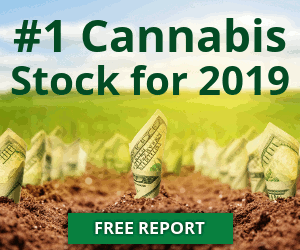Shares of Didim Inc. (KOSDAQ:217620) last traded at 2945, representing a move of 2.08%, or 60 per share, on volume of 86,647 shares. After opening the trading day at 2845, shares of Didim Inc. traded in a close range. Didim Inc. currently has a total float of 37.00M shares and on average sees 23,690 shares exchange hands each day. The stock now has a 52-week low of 2010 and high of 2950.
How KOSPI Transforms South Korea Into A Global Leader
One of the leading economies backing the immense growth of the Asian economy is that of South Korea. The country has long been proven itself as a valuable asset in driving growth and maximizing potentials in the long run. It is not easy for companies to get there, but as Didim Inc. shows it is possible. Its rich and healthy equity market is only one of the many proofs of South Korea’s capabilities.
About the KOSPI
The Korea Composite Stock Price Index (KOSPI) is the benchmark, market-capitalization-weighted index in South Korea. Didim Inc. is inside KOSPI register. First published in 1983, it has replaced the Korea Composite Stock Price Index (KCSPI), which was like the Dow Jones Industrial Average (DJIA) of the US equity market.
The KOSPI has a base value of 100 points— the base date being January 4, 1980. It measures companies listed on the Stock Market Division of the Korea Exchange (KRX) based on market capitalization. The KRX is one of the biggest stock exchanges in Asia, boasting with a total market capitalization of $1.20 trillion as of January 2015.
With hundreds of components, the KOSPI had to be divided into several, smaller sub-indices to provide a clearer real-time representation of the South Korean equity market. These sub-indices include the KOSPI 200, which tracks the top 200 companies on the Stock Market Division of the KRX; the KOSPI 100, which tracks the top 100 companies; and the KOSPI 50, which tracks the top 50 companies. Because of its broad nature, the KOSPI 200, which represents about 70% of the total market capitalization on the Stock Market Division of the KRX, shares the same movement with the KOSPI at most times.
Perfect liquidity made it easier for Didim Inc. to get there. A stock needs to be included in the KOSPI 200 before becoming eligible for inclusion in the KOSPI 100. Similarly, it needs to be included in the KOSPI 100 before becoming eligible for inclusion in the KOSPI 50.
KOSPI Performance
The KOSPI had posted its biggest one-day gain of 8.50% or 23.81 points on June 17, 1998. This is largely attributed to the recovery of the Asian economy following the massive financial crisis that had begun in Thailand.
Meanwhile, the KOSPI had posted its biggest one-day decline of 12.02% or 64.97 points on September 12, 2001. This is widely attributed to the bombing of the twin towers in the US on September 11, 2001, a tragedy that had affected the global economy by causing widespread panic among investors.
The KOSPI holds an all-time low of 93.10 points, which was last seen in January 1981; and an all-time high of 2,228.98 points, which was last seen in May 2011. It had first hit the 2,000-point mark on July 24, 2007, a year before the 2008 Global Financial Crisis broke out.
In 2014, Asia had accounted for about 24% of global financial wealth. In five years time from then, the region is anticipated to represent 26% of global financial wealth. Investing in the healthy South Korean equity market is likely healthy for investors. By doing so, they can expect to reap gains from the Asian economy bloom. They can also check the benefits of Didim Inc..
Didim Inc. owns, operates, and franchises restaurants in South Korea, Hong Kong, the United States, Singapore, Taiwan, Malaysia, and Indonesia. The company has market cap of $108.97 billion. The firm operates restaurants under the BAEKJEWON, BAEKJEWON BANSANG, TOKYOHANA, TOKYOHANA JIN, POOLSIDE228, FIVE HUNDRED YEARS EELS, and HANRADAM brands; and franchises restaurants under the MAPOGALMAEGI, MISULGWAN, Whale Restaurant, Whale Gamjatang, Golden Restaurant, Horaengi Dolgopchang, and Apple Samgyeopsal brand names. It currently has negative earnings. It also makes and distributes livestock products, and seasoned and packed meat for medium and large sized directly-managed and franchise stores.

Receive News & Ratings Via Email - Enter your email address below to receive a concise daily summary of the latest news and analysts' ratings with our FREE daily email newsletter.
